What is Lettuce Water Sleep and Does It Work?
Everyone knows that getting their daily dose of fruits and vegetables is essential for leading a healthy, full life. But what if certain vegetables could actually help you sleep better? One such belief is that lettuce water actually has sleep-inducing benefits and may ease certain insomnia symptoms.
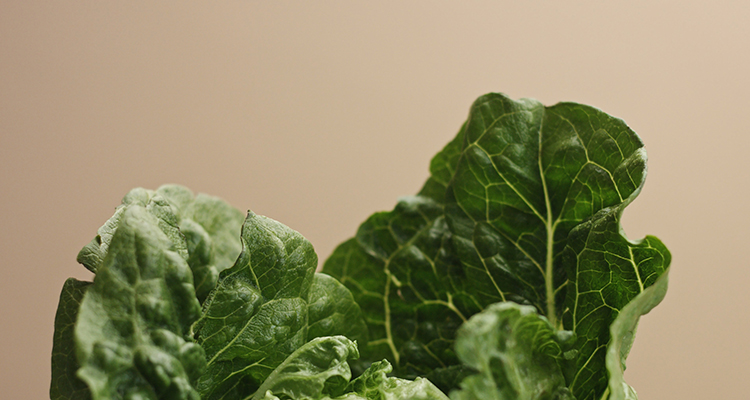
But with millions of people suffering from insomnia, is it possible that lettuce water could be the key to unlocking blissful, quality sleep? Keep reading as we explore this question and others about what lettuce water is and what affects it has on sleep.
Content
What is Lettuce Water?
As the name suggests, lettuce water is made by boiling romaine lettuce in water. It’s nothing fancy or complicated and it was first seen on the popular social media app, TikTok. Videos show users boasting about sleeping 10 or 12 hours after sipping on hot lettuce tea at night. Some people even reported that drinking hot lettuce water was the only thing that helped them sleep despite trying melatonin and countless other sleep aids and medications.
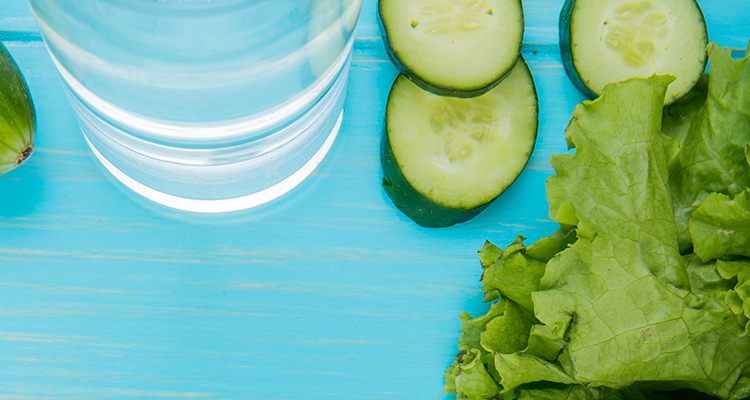
Making lettuce water involves pouring boiling water directly over romaine lettuce before removing the leaves and drinking it. Even just a few sips of this warm “tea” is believed to help you fall asleep faster and stay asleep longer.
What is Lettuce Water for Sleep and How Does it Work?
So, what is it about lettuce water that supposedly leads to improved sleep quality? While there’s no scientific evidence that sipping lettuce water will induce sleep, romaine lettuce does contain certain ingredients that may aid in relaxation and help improve sleep quality and duration.
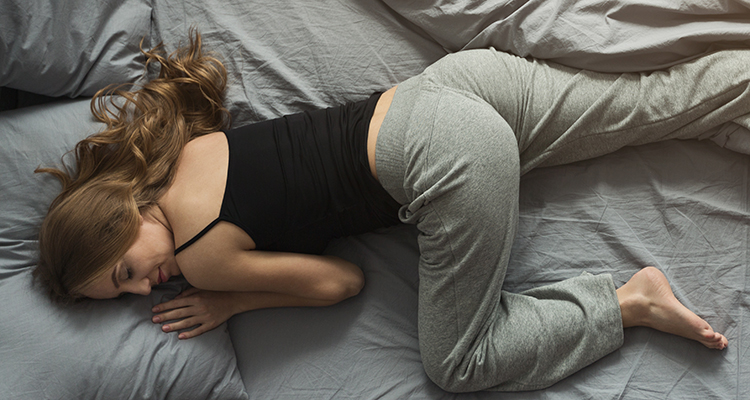
Lettuce contains both lactucin and lactucarium which, according to one study, are sleep-enhancement substances. Also referred to as lettuce opium, lactucin may offer sedative properties. Some users even report experiencing pain relief when ingesting this ingredient. If you look close enough, you can see lactucarium at the base of certain types of lettuce. It looks like a milky white substance. Once boiled, the lettuce leaves release these chemical compounds and they enter the water. It’s believed that these compounds are what help some people fall asleep after drinking lettuce water. While most TikTok videos show people boiling only a few leaves at a time, many sleep experts claim users would need to boil entire heads of lettuce to extract enough lactucarium to make a difference.
The theory that lettuce water can help you sleep isn’t the first time that this leafy green has been credited for its health benefits. In fact, lettuce has been used for medicinal purposes for hundreds of years, especially in Mexican culture. In ancient Roman, Greek, and Egyptian civilizations, it was common practice to eat lettuce after every meal as a way to bring about sleepiness. Egyptians believed lettuce also helped increase a man’s libido. These civilizations also worked to cultivate different types of lettuce to create a more pleasant, less-bitter taste. The result is the lettuce you find today in the produce section of your favorite grocery store. Additional benefits of lettuce include bone strength, improved vision, and extra hydration which all support a healthy, functioning immune system.
The Science Behind Lettuce Water for Sleep
There have been very few research studies conducted on the efficacy of lettuce water for sleep. Of the ones completed, they’ve all been done on mice. It’s also important to note that these studies used lettuce seeds and lettuce extract, not whole romaine lettuce leaves or lettuce water. One study published in Food Science Biotechnology claimed that the use of lettuce extract (specifically red romaine) did show an increase in sleep duration in some mice. Other findings indicated that the lettuce extract didn’t help the mice fall asleep faster but, instead, helped them sleep longer. Some experts disputed this study, claiming the mice were also given a sedative shortly after they ingested the lettuce extract.
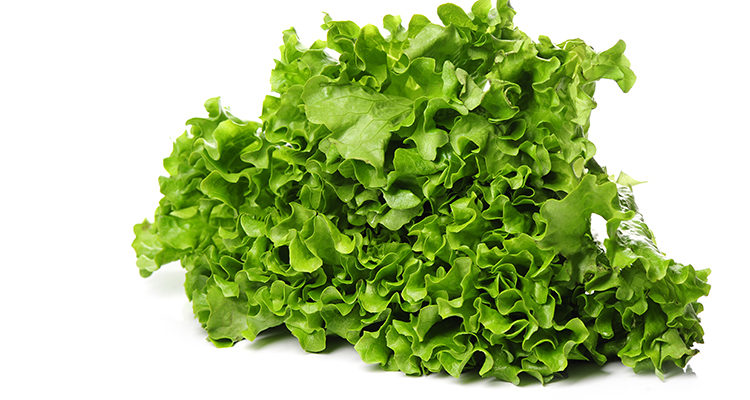
As of this writing, there have been no evidence-based results on how lettuce water affects sleep in humans. For this reason, many people believe drinking lettuce water for sleep is more of a myth or TikTok trend than a valid way to cure insomnia.
While ingesting romaine lettuce alone has its benefits, the idea that lettuce water is better for you follows the same principle as drinking mint or lavender tea or using rose-infused essential oil. These products all contain more concentrated levels of these ingredients, making them more potent and their effects even stronger. Although some people believe the effects and levels of lactucin and lactucopicrin are higher in lettuce water than in the leaves themselves, there is no scientific evidence to support this claim. That means you may experience the same sleep-inducing benefits of romaine lettuce by eating a caesar salad as you would boiling the leaves and then drinking the water.
Other sleep scientists and experts also claim that it’s not the lettuce water itself that may be helping you sleep but, instead, the soothing warmth of the boiled water and the habit of drinking it before bed. There’s something calming and soothing about warm drinks including hot tea and warm milk. Warm liquids can also aid in digestion, reducing bloating, gas, and heartburn.
Consistently incorporating certain behaviors in your nighttime routine also offers added benefits. When you perform the same activities around the same time every night, they act as cues to your brain and body that it’s time to prepare for sleep. It also helps support a balanced circadian rhythm, making it easier for you to fall and stay asleep. Boiling up a cup of hot lettuce water and sipping it before bed, before you take a shower, or while writing in a journal or reading can become a healthy habit that better prepares your body for sleep. These sleep improvements may have little to do with the lettuce water itself and more to do with how and when you ingest it.
What Does Lettuce Water Taste Like?
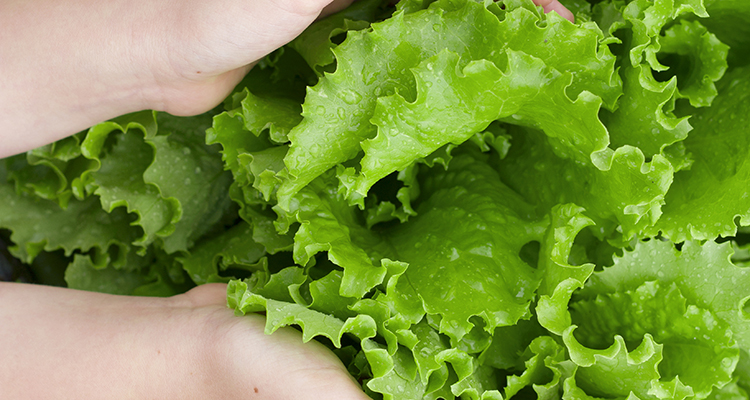
Most people who have tried the lettuce water for sleep TikTok trend can agree that boiled lettuce water doesn’t have much of a taste at all. While some people expected a bitter or even gross aftertaste, nearly everyone claimed that lettuce water didn’t taste like anything. A few people described the flavor as the “mild taste of vegetables”. Almost all drinkers also claimed the water had a lettuce aroma that was mild but not overpowering.
Alternatives to Lettuce Water for Sleep
If the idea of boiling a head of lettuce in a pot and drinking the leftover water sounds gross to you, there are plenty of other more appealing options for easing insomnia symptoms. Here are a few healthy sleep habits to try that may offer the same potential benefits as drinking warm lettuce water.
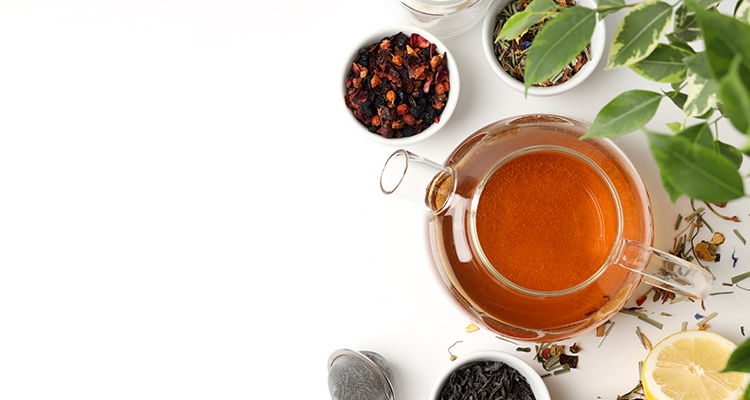
Drink Herbal Tea
There are numerous herbal teas designed to help you relax and prepare for sleep. The most popular flavors include chamomile, lavender, and lemon balm. Valerian root and passionflower also offer sleep-inducing benefits.
Chamomile’s chemical structure makes it act like a sedative for some people. The plant extract contains a chemical compound known as apigenin. When apigenin binds with certain GABA receptors in the brain, it helps trigger feelings of sleepiness and relaxation. Drinking a cup of hot chamomile tea can facilitate the transition from being awake to being asleep.
Lavender tea can also induce sleep by triggering certain chemical reactions in the nervous system that help calm brain functions. This can reduce anxious thoughts and slow your heart rate, making it easier for you to fall asleep. Lavender also boosts dopamine levels, reducing stress and cortisol levels (the stress hormone).
Reduce Alcohol Consumption
Sometimes, what you don’t drink is just as important as what you do. Alcohol is a depressant that directly affects your central nervous system. When you have an alcoholic beverage (including beer and wine) before bed or even in the late evening, the alcohol enters your bloodstream and circulates to your brain. There, it affects how quickly neurons in your brain fire, slowing them down significantly. A decrease in neuronal firings can trigger feelings of fatigue and sleepiness, plus relaxation. That’s why you feel relaxed or “buzzed” as more alcohol enters your bloodstream.
Unfortunately, once this euphoria wears off, you may find yourself waking up feeling restless and anxious. Heavy drinking can also cause you to spend more time in deep sleep and less time in REM sleep, which is the most important sleep stage.
Avoid Caffeine Late in the Day
Alcohol isn’t the only beverage you should avoid if you’re trying to combat insomnia and achieve quality sleep. As beneficial as certain herbal teas can be, it’s important to never drink caffeinated tea or other caffeinated beverages too late in the day.
When you ingest caffeine, your body quickly digests and absorbs it, sending it throughout your bloodstream. The caffeine then enters your brain and works to keep you awake and alert. Caffeine blocks sleep-inducing receptors in your brain known as adenosine receptors. With a half-life of four to six hours, drinking caffeinated beverages too late in the afternoon can lead to trouble falling asleep, frequent awakenings, and even nightmares. Some caffeinated beverages (including coffee) may act as a diuretic, causing frequent bathroom trips throughout the night.
The Lettuce Water Wrap Up
Are you thinking of trying the newest lettuce water TikTok trend that promises to help you fall asleep faster and sleep better? If so, you may want to think twice. While drinking water that’s been boiled using lettuce leaves won’t hurt you in any way, it may not deliver the sleep-inducing results you’d hoped for. With so many other scientifically-proven ways to ease insomnia symptoms and achieve quality sleep, you may want to try a more reliable approach.

CBTi is a natural way to treat insomnia and help adopt healthier sleep habits that translate to a healthier and happier life. Using mindfulness, meditation, and several types of therapy, CBTi can help you retrain your brain and circadian rhythm and establish healthy sleep patterns.
Want to learn more? Click here!














